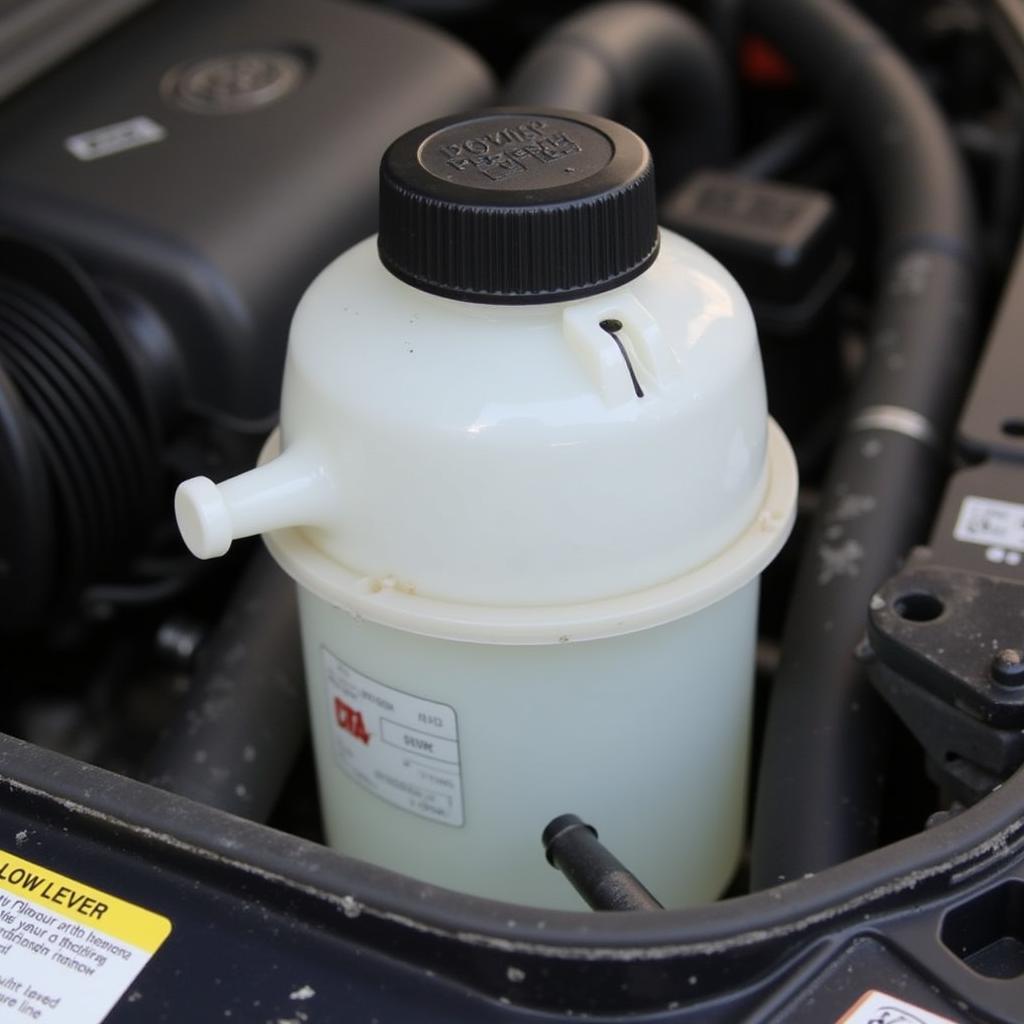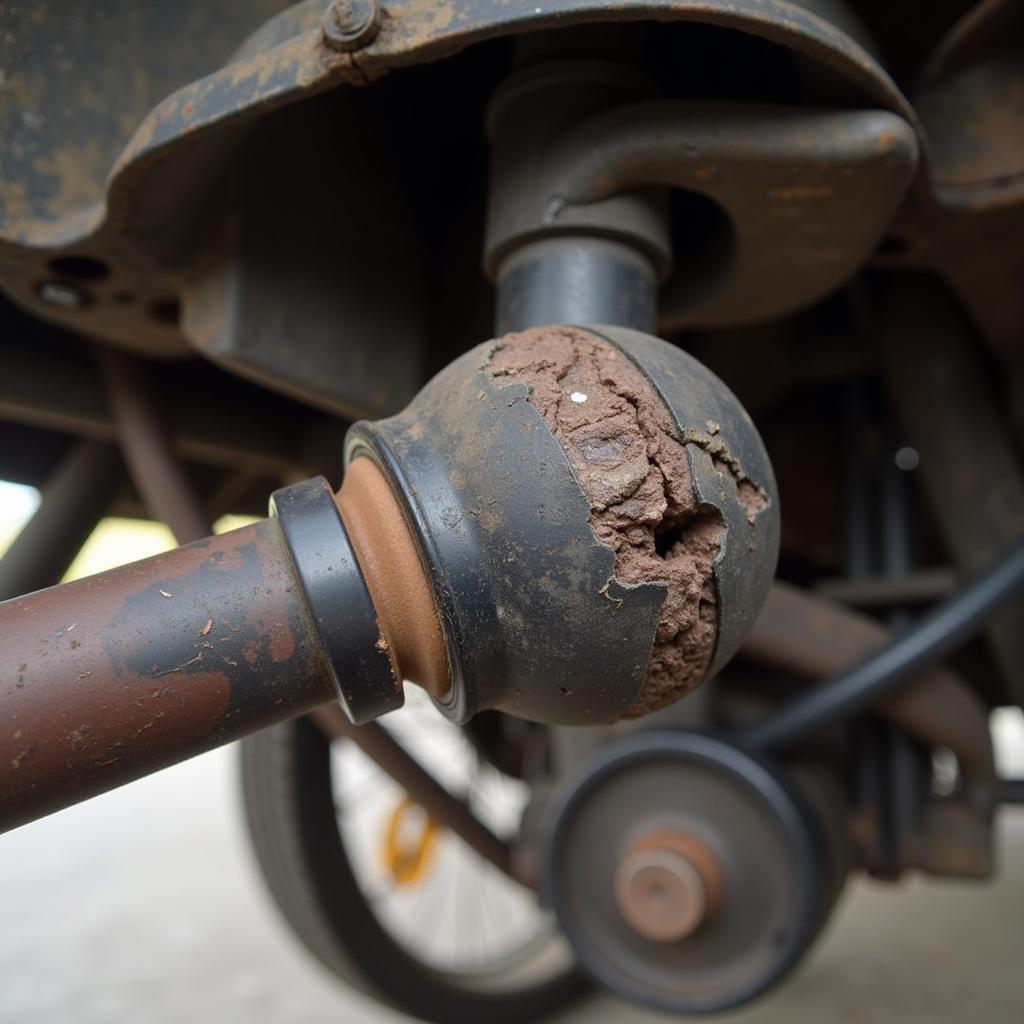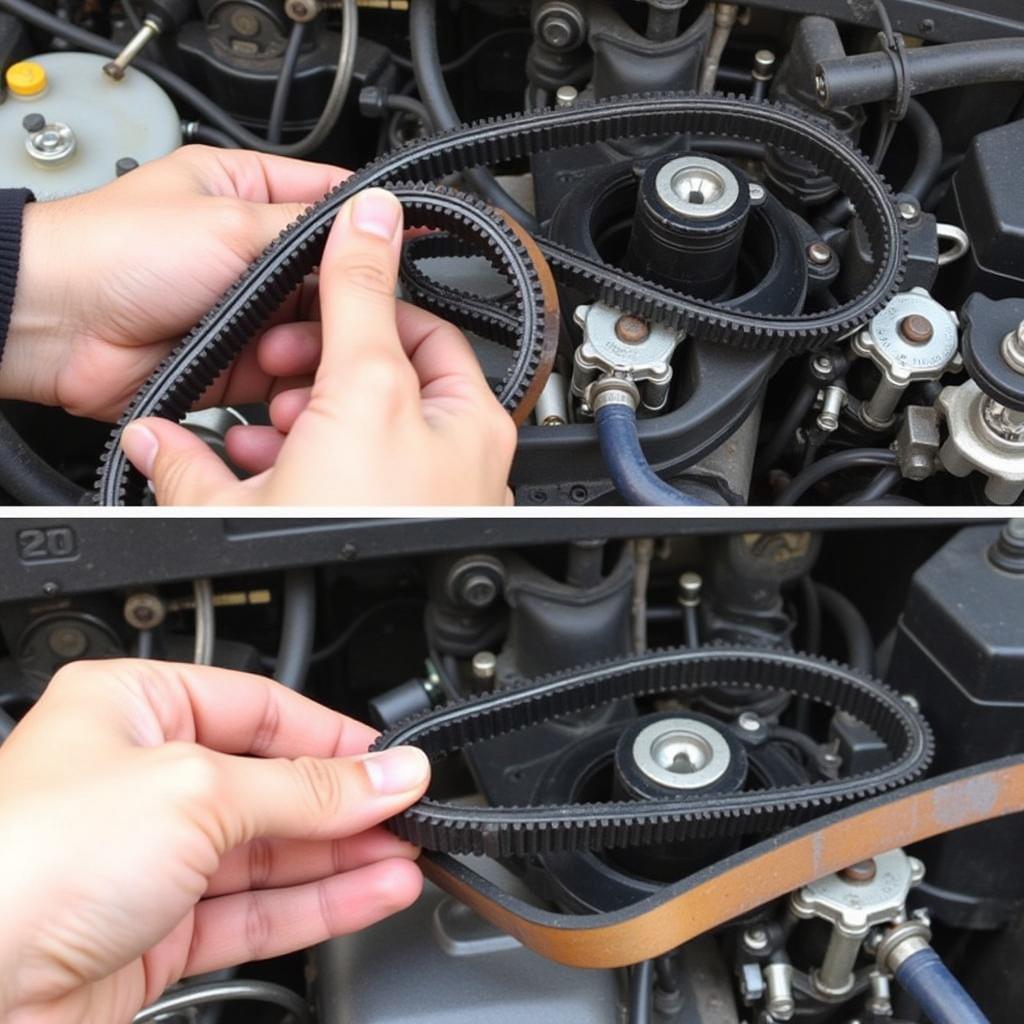Dealing with a noisy steering wheel can be frustrating and concerning. This article provides a comprehensive guide to understanding, diagnosing, and resolving Car Steering Noise Problems, offering valuable insights for car owners, mechanics, and automotive technicians.
A car’s steering system is crucial for safe and controlled driving. Any unusual noises emanating from the steering wheel should be addressed promptly to prevent potential safety hazards. Common causes of these noises range from simple issues like low power steering fluid to more complex problems like worn-out steering components. This guide will equip you with the knowledge to identify the source of the noise and determine the appropriate course of action. After the initial inspection, you might need to hire a professional mechanic, especially if the problem involves complex mechanical components. Some car problems that require a mechanic involve specialized tools and knowledge.
Power steering fluid leaks are a common culprit behind steering noises. Inspect the power steering fluid reservoir and check for leaks around the hoses and pump. Low fluid levels can lead to whining or groaning sounds, especially during turns.
Identifying the Type of Steering Noise
Different noises indicate different problems. A whining noise often points to a power steering issue, whereas a clunking sound might suggest a problem with the suspension or steering linkage. A grinding noise could indicate worn-out bearings or other internal components within the steering system. Accurately identifying the type of noise is the first step towards a successful diagnosis. If you are uncertain about the specific noise you are experiencing, consulting a qualified mechanic is always recommended. You can find solutions to several car parking problem solution online, however, be mindful about your particular situation.
Common Causes of Whining Noises
Whining noises are often associated with the power steering system. Low power steering fluid, a faulty power steering pump, or a worn-out power steering belt can all contribute to this type of noise. Regular maintenance, including checking and topping off power steering fluid, can help prevent these issues.
 Low Power Steering Fluid Level
Low Power Steering Fluid Level
Diagnosing Clunking and Grinding Sounds
Clunking sounds often indicate a problem with the suspension system, such as worn-out ball joints or tie rod ends. These components connect the steering system to the wheels and are essential for proper vehicle control. Grinding noises can be a sign of worn-out bearings within the steering column or other internal parts of the steering system.
 Worn-Out Tie Rod End
Worn-Out Tie Rod End
Troubleshooting Car Steering Noise Problems
Once you’ve identified the type of noise, you can begin troubleshooting the problem. Start by visually inspecting the steering system components, checking for any signs of wear, damage, or loose connections. If you’re comfortable working on your car, you can attempt to fix some of the simpler issues, such as topping off the power steering fluid. However, for more complex problems, seeking professional help is essential.
Power Steering System Checks
Check the power steering fluid level and condition. If the fluid is low or dirty, top it off or flush the system as needed. Inspect the power steering belt for cracks or fraying. If the belt is worn, it should be replaced. Issues with older BMW models can be researched further, addressing potential bmw used cars problems.
 Checking Power Steering Belt
Checking Power Steering Belt
Steering Linkage and Suspension Inspection
Inspect the tie rod ends, ball joints, and other steering linkage components for looseness or excessive play. Worn-out components should be replaced immediately. Addressing car problems 1 year after accident insurance already paid can be complicated but finding the right resources is important.
“Regular maintenance is crucial for preventing steering problems,” advises John Miller, a certified automotive technician with over 20 years of experience. “Simple checks like inspecting the power steering fluid and belt can save you from costly repairs down the road.”
Maintaining Your Steering System
Regular maintenance is key to preventing car steering noise problems. This includes checking and topping off power steering fluid, inspecting the power steering belt, and having the steering system components checked by a qualified mechanic during regular service intervals. You can also find resources about most common car breakdown problems.
“A properly maintained steering system not only ensures a quiet and smooth ride but also contributes significantly to overall vehicle safety,” adds Sarah Johnson, a mechanical engineer specializing in automotive systems. “Don’t ignore those unusual noises – address them promptly to prevent potential hazards.”
Conclusion
Addressing car steering noise problems promptly is essential for ensuring a safe and enjoyable driving experience. By understanding the different types of noises and their potential causes, you can effectively troubleshoot the issue and take the appropriate action. Whether it’s a simple fix like topping off the power steering fluid or a more complex repair requiring professional assistance, addressing these problems proactively will help maintain the integrity of your vehicle and prevent potential safety hazards. Don’t hesitate to reach out to AutoTipPro at +1 (641) 206-8880 or visit our office at 500 N St Mary’s St, San Antonio, TX 78205, United States for expert assistance with your car steering noise problem.
FAQ
- What is the most common cause of car steering noise? Low power steering fluid is a frequent culprit.
- What does a whining noise in the steering wheel indicate? A whining noise typically suggests a problem with the power steering system.
- Should I be concerned about a clunking noise when turning the steering wheel? Yes, a clunking noise can indicate a problem with the suspension or steering linkage.
- Can I fix car steering noise problems myself? Some simple issues can be addressed at home, but complex problems require professional help.
- How can I prevent car steering noise problems? Regular maintenance is key, including checking fluids and belts.
- What should I do if I hear a grinding noise when turning the steering wheel? This could indicate worn-out bearings and requires immediate inspection.
- Is it safe to drive with a noisy steering wheel? No, it’s best to have the problem diagnosed and addressed promptly to avoid potential hazards.





Leave a Reply